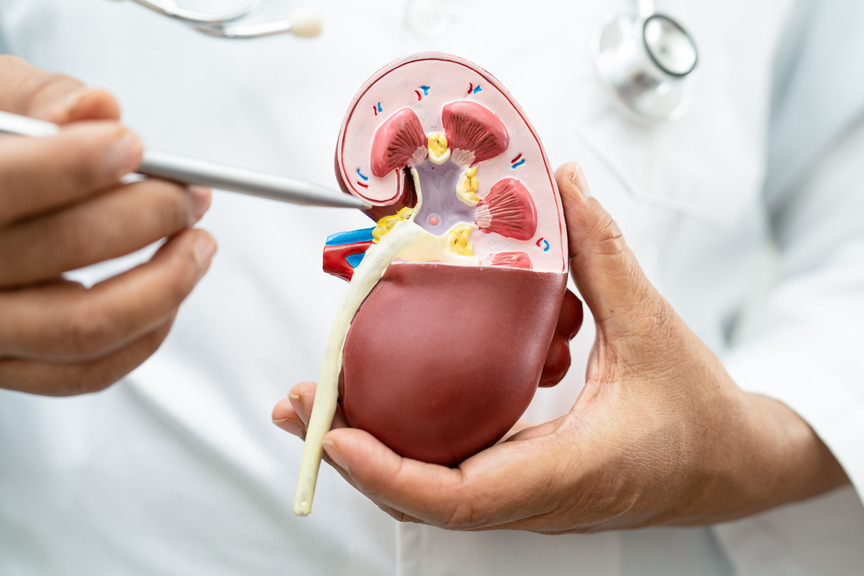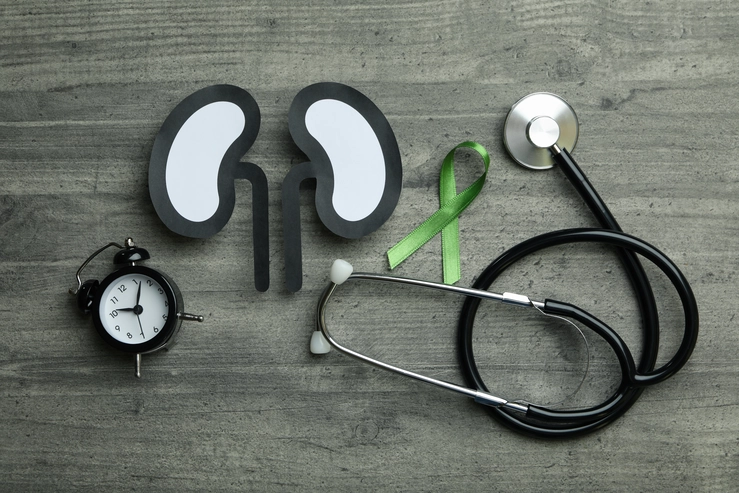Kidneys : Function, Health and Diseases
DR. PIYUSH GUPTA
MS, DNB, MNAMS, McH (Urology)
Consultant Urologist. EDMC
Dr. Piyush Gupta
Kidneys
Yes, The Kidneys.
These forgotten organs diligently working day and night to keep us in good health. They are remembered only when the characters in a movie want to make light of excessive alcohol drinking or in I phone buying jokes.
They quietly do their job without seeking much attention, until, of course, a painful kidney stone decides to disrupt our life. Let’s understand these organs, their vital functions, how they filter blood, common kidney problems, the first signs of kidney problems, and the common tests used to evaluate kidney health.
By the end of this article I hope you would remember kidneys as an organ to be nurtured and not merely as the butt of jokes !

What do Kidneys do? What are their Functions?
Good question. Have you noticed they look like Beans? Well these two Beans play a crucial role in maintaining our body’s overall well-being. Here are some of their primary functions:
Filtration and Waste Removal
You know this one. The kidneys are remarkable filters, cleaning the blood by sifting through it to remove waste , excess water, and toxins. They help regulate the body’s fluid balance by adjusting the amount of urine produced.
Electrolyte Balance
The beans also help in maintaining the proper levels of electrolytes, such as sodium, potassium, calcium, and phosphate, in the blood. Maintaining this balance is vital for normal cell function and overall health.
Blood Pressure Regulation
You heard it right! The kidneys also play a role in controlling blood pressure. They produce a hormone called renin, which helps regulate blood vessel constriction and fluid volume.
Acid-Base Balance
By excreting acids and reabsorbing bicarbonate, the kidneys help regulate the body’s acid-base balance, keeping our blood pH within a narrow range.
Red Blood Cell Production
Another remarkable task of the kidneys is the production of a hormone called erythropoietin, which stimulates the bone marrow to produce red blood cells. These cells are responsible for carrying oxygen throughout our bodi

How Do They Actually Filter Blood?
We know what the kidneys do, let’s delve into how they perform their intricate blood-filtering process:
Stage 1 – The SI Unit of Kidney : Nephrons are microscopic structures inside kidney. Our kidney contains millions of nephrons, which are responsible for filtering blood and forming urine. Well how do they do that.
Stage 2 – Glomerular Filtration: Within each nephron, there is a cluster of tiny blood vessels called the glomerulus. As blood flows through the glomerulus, waste products, electrolytes, and excess water are filtered out, while red blood cells and larger molecules remain in the bloodstream.
Stage 3 – Tubular Reabsorption and Secretion: After filtration, the filtered fluid, known as filtrate passes through a tubular system. The fascinating part is, during this journey, the tubules reabsorb important substances like glucose, amino acids, and electrolytes back into the bloodstream!
Imagine how well organized and efficient is our body! Now at the same time, waste products and excess substances are secreted into the tubules for excretion.
Stage 4 – Urine Formation: The final result of this long and dextrous process of filtration and reabsorption process is the formation of urine. The urine then passes through the ureters, collects in the bladder, and is eventually excreted from the body through the urethra.

What Are the First Signs of Kidney Problems?
Recognizing the early signs of kidney problems can be crucial for prompt intervention. Common indicators of kidney issues include:
Changes in Urination: Pay attention to changes in the frequency, color, or odor of your urine. Foamy urine or blood in the urine (hematuria) may also be warning signs.
Swelling: Kidney dysfunction can cause swelling in the hands, feet, ankles, or face due to fluid retention.
Fatigue and Weakness: When the kidneys are not functioning optimally, toxins can build up in the body, leading to fatigue, weakness, and difficulty concentrating
Pain: Kidney-related pain can manifest as lower back pain, side pain, or pain in the abdomen. This pain may be accompanied by other symptoms like fever or urinary changes.
High Blood Pressure: Kidney problems can contribute to high blood pressure or worsen existing hypertension.
Book an Appointment with a Urologist if you feel like you have any concerning issue!
Which Are the Common Kidney-Related Tests?
To assess kidney function and detect potential issues, we may recommend several tests:
Urinalysis: This simple test examines a urine sample for the presence of abnormalities, such as blood, protein, or infection.
Blood Tests: Blood tests can measure kidney-specific markers like creatinine and blood urea nitrogen (BUN) to evaluate kidney function. These tests also help assess electrolyte levels and overall health.
Imaging Tests: Ultrasound, CT scans, or MRIs can provide detailed images of the kidneys, helping identify abnormalities, stones, or cysts.
Kidney Biopsy: In some cases, a kidney biopsy may be necessary to obtain a small sample of kidney tissue for further examination under a microscope.
Glomerular Filtration Rate (GFR): GFR is a calculated value based on blood tests that estimates how well the kidneys are filtering waste products. It provides a measure of overall kidney function.

